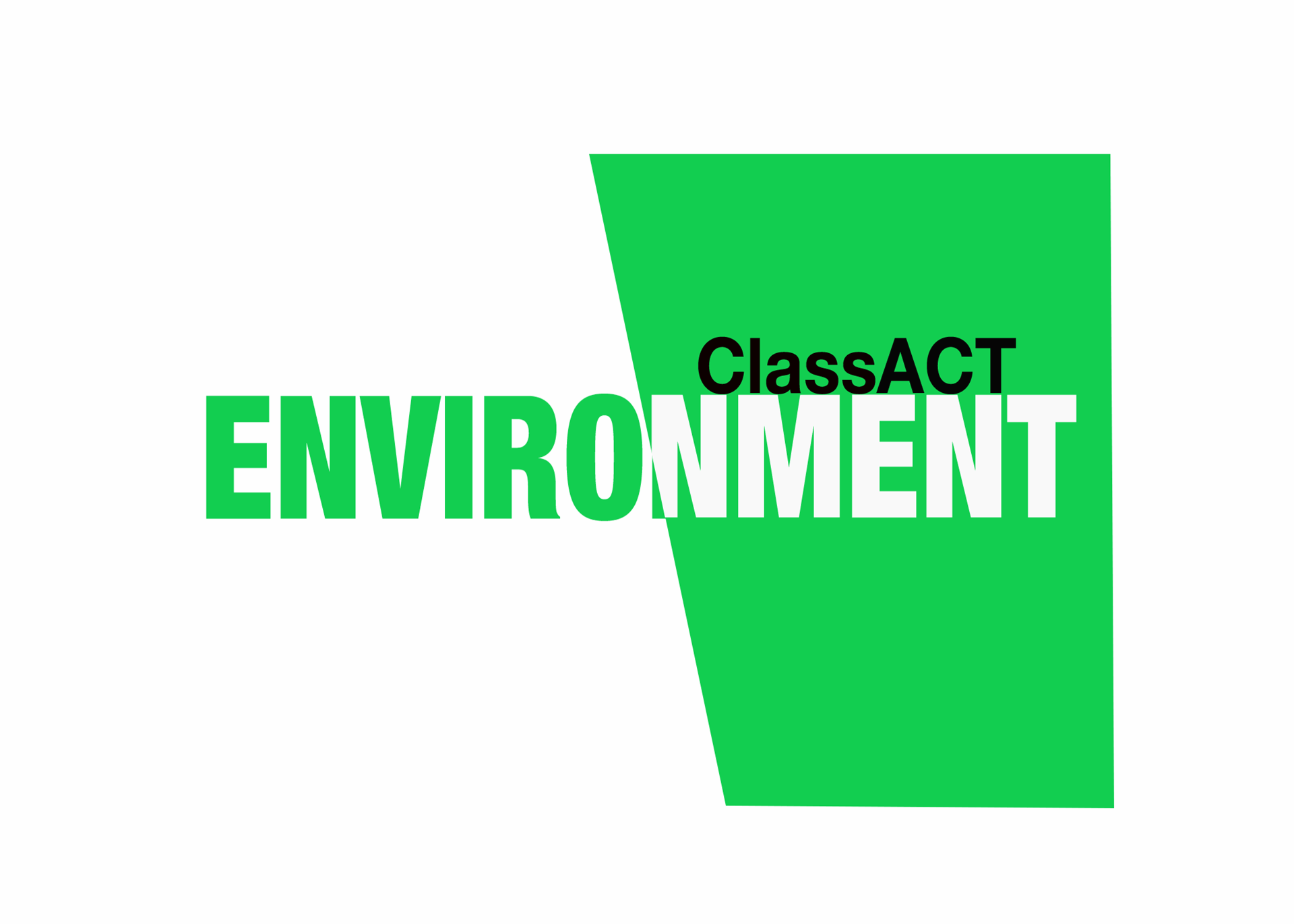- HOME
- Our Work
- Our Focus Areas
- Environment & Climate Change
ENVIRONMENT & CLIMATE CHANGE
ClassACT HR73 focuses its work and service in five areas: Environment and Climate Change, Health and Healthcare, Justice and Civic Engagement, Culture Counts, and Education.
|
Projects |
ClassACTion Alerts:Critical environmental protections have recently come under attack and will continue to be assaulted by the Trump Administration and/or in Congress in coming months. The ClassACT HR73 Environment & Climate Change Working Group has identified two pressing issues where we and our classmates can defend the integrity of science and the laws addressing climate change, biodiversity, and environmental protection. We describe opportunities for concerned individuals to engage.
|

ClassACT HR73 is pleased to announce a ClassACTors Learn at Lunch series focusing on Biodiversity, Climate Change and the Environment…an informal monthly zoom meeting to hear, learn from, and ask questions of members of the ClassACT Environmental Working Group and others.
RECENT LEARN AT LUNCH SESSIONS:
- Learn at Lunch with Lindsay Clarkson '73, May 14, 2025
- Citizen Suits: Environmental Laws with Bob Dreher '73, April 9, 2025
- Food and the Global Environment with Jason Clay '73, March 5, 2025
Zoom Forums |
ENVIRONMENT ON THE BALLOT IN 2024 AND BEYOND September 16, 2024 “How do we take action in this upcoming election and beyond on some of the most pressing environmental issues of our age?” The round table discussion included the Environmental Committee Chair W. John Kress ’73, Ph.D., Distinguished Scientist and Curator Emeritus, National Museum of Natural History, Smithsonian Institution, Jason Clay ‘73, Ph.D.; Senior Vice President, Markets and Food, and Executive Director, Markets Institute for the World Wildlife Fund; Robert Dreher ’73, M.A., J.D., Legal Director of the Potomac Riverkeeper Network; James Engell ’73, PhD ’78, Gurney Professor of English Literature and Professor of Comparative Literature, Inaugural Member of the Faculty Advisory Committee for the Salata Institute; and Anne MacKinnon '73, J.D., Ph.D., former editor of the Wyoming’s Casper Star-Tribune and an expert on water issues. Jacquelyn Swearingen ‘73, Ph.D., a retired journalist and historian who has written and taught about environmental issues in the United States and East Asia, moderated.CLIMATE CHANGE, PUBLIC-PRIVATE PARTNERSHIPS, AND SOCIAL EQUITY: LESSONS FROM BANGLADESH March 1, 2024 ClassACT’s Benazir Bhutto Leadership Program, along with the Weatherhead Center for International Affairs (WCFIA) and the Salata Institute, both at Harvard, hosted a daylong in person Symposium focused on mitigating climate change and its concomitant social inequities through public-private partnerships. Panelists included Ambassador Peter Galbraith AB ’73, Senior Diplomatic Fellow, Center for Arms Control and Non-Proliferation, Marion Dry AB ’73, Chair, ClassACT HR73, Dustin Tingley, Professor of Government, Deputy Vice Provost, Advanced Learning, Harvard University, Nazmul Haque, Fellow, Benazir Bhutto Leadership Program, HKS, Leigh Hafrey AB ’73, Senior Lecturer, Communication and Ethics, MIT Sloan School of Management, Diego Osorio MC/MPA ’09, Fellow, Weatherhead Scholars Program, Hélène Benveniste, Postdoctoral Fellow at the Salata Institute for Climate and Sustainability, Michael Hiscox PhD ’97, Clarence Dillon Professor of International Affairs, FAS, James Engell AB ’73, PhD ’78, Gurney Professor of English Literature and Professor of Comparative Literature, Erum Sattar LLM ’10, SJD ’17, Former Program Director and Lecturer, Sustainable Water Management Program (SWM), Tufts Institute of the Environment, Kimball Chen AB ’73, MBA ’78, Chairman, The Global LPG Partnership, and Peter Tufano AB ’79, MBA ’84, PhD ’89, Baker Foundation Professor, HBS. FROM THE CHARLES RIVER TO HALF-EARTH: 50 YEARS TO 50 PERCENT CLASSACT HR73 REUNION ENVIRONMENT SYMPOSIUM June 1, 2023 In his 2016 book Half-Earth: Our Planet's Fight for Life, Harvard biologist Edward O. Wilson (1929-2021) proposed the designation of half of Earth’s surface, both terrestrial and marine, as a natural reserve to safeguard the remaining biodiversity of the planet. Classmates of HR73, who are members of the ClassACT HR73 Working Group on the Environment and Climate Change and have devoted 50 years of their lives, energies, and careers to environmental issues, presented their thoughts and experiences on how we must make significant changes in our lifestyles, utilization of natural resources, economies, cultural practices, and political priorities to achieve Wilson's vision of protection of 50% of the Earth. With backgrounds in environment, law, government, medicine, business, and academics, discussion focused on action that can be taken through ratification of international biodiversity treaties and local to global land trusts as vehicles for species and ecosystem protection. Panelists included: John Adams, Jesse Ausubel, Kimball Chen, Lindsay Clarkson, Bob Dreher, Marion Dry, John Kress, Henrietta Wigglesworth Lodge, Anne MacKinnon, Mike Mayer, Roger Myerson, and Sharon Tisher. Learn more.PROTECTING HALF-EARTH: OPPORTUNITIES AND OBSTACLES April 17, 2023 The second, follow-up ClassACT HR73 Forum again brought together a variety of expertise and perspectives to address how Half-Earth will unfold in the future, focusing on the challenges of conserving the planet. The panel of experts include Kiani Akina, Class of 2025 and an Environmental Science and Public Policy Major at Harvard College; Jason Clay ‘73, Ph.D., Senior Vice President, Markets and Food, and Executive Director, Markets Institute for the World Wildlife Fund; David Foster, Ph.D., Director Emeritus, Harvard Forest, Harvard University; and Cristián Samper, PhD., Managing Director and Leader for Nature Solutions at the Bezos Earth Fund. W. John Kress ’73, Ph.D., Distinguished Scientist and Curator Emeritus, National Museum of Natural History, Smithsonian Institution, who moderated the first ClassACT HR73 “Half-Earth” panel last fall, will lead the discussion of the second panel on April 17 as well. HALF-EARTH: CONSERVING BIODIVERSITY FROM THE DEEP SEA TO MT. EVEREST October 20, 2022 Moderators Jesse H. Ausubel ‘73, Director of the Program for Human Environment at the Rockefeller University, and Dr. W. John Kress ‘73, Distinguished Scientist and Curator Emeritus at the Smithsonian’s National Museum of Natural History, led a powerful discussion with three fellow classmates about the existential threats to biodiversity and the possible ways to preserve species and their habitats. The distinguished panel included Broughton Coburn '73, a Visiting Assistant Professor for Colorado College and an author and environmental conservationist who has helped to protect plants and wildlife on the Himalayan plain and in the valleys and mountains of Wyoming; Sharon S. Tisher '73, who for 27 years has taught environmental law and policy courses at the University of Maine while chairing boards for environmental non-profits like the National Resources Council of Maine and compiling a climate chronology; and Dr. Dean Wang '73, Associate Professor Emeritus at the University of Vermont, who has researched biogeochemistry and nutrient cycling as well as teaching about sustainability. Drawing inspiration from the late biologist E.O. Wilson’s concept of “Half Earth,” they explored ways to realize Wilson’s vision of protecting half of the Earth’s land and oceans in order to prevent the extinction of more species, champion biodiversity and save the planet.CAN 21ST CENTURY CAPITALISM SOLVE SCHOOL FAILURE, CLIMATE CHANGE, AND INCOME INEQUALITY? December 16, 2021 Moderator Leigh Hafrey ’73, Senior Lecturer at the MIT Sloan School of Management, and former co-Master of Mather House, led a stirring discussion about imaginative ways that impact investing and partnerships between public and private investors can help remedy poverty, failing schools and the climate crisis. The distinguished panel included Roger W. Ferguson, Jr. ’73, the former Vice Chairman of the Board of Governors of the Federal Reserve System and the former President and CEO of TIAA; Natasha Lamb, Managing Partner and Co-Founder of Arjuna Capital; and Tracy Palandjian, CEO and Co-Founder of Social Finance and former Vice-Chair of the Harvard Board of Overseers.CLIMATE CHANGE AND WATER CRISES: DROUGHT, FLOOD, CONTAMINATION...AND WHAT WE CAN DO ABOUT IT October 25, 2021 We bought together a panel of experts, moderated by Erum Sattar, Program Director of the Sustainable Water Management Program (SWM) at Tufts University, and including Andy Sawyer HR’73, Assistant Chief Counsel of the California State Water Resources Control Board, Jeff Hébert, President of HR&A, Kelsey Leonard, water scientist, legal scholar, policy expert, writer, and enrolled citizen of the Shinnecock Nation, and William Moomaw, Emeritus Professor of international environmental policy at Tufts University, to discuss these disparate and interrelated problems. Together, we aimed to attain greater understanding of the immense challenges to global and local water security and to begin to chart future actions. Learn more. |
Classmate Spotlights |
Below, we highlight classmates and initiatives whose work fits into the category of Environment & Climate Change. Scroll through and see if you recognize anyone! And if you're interested in participating in any of the initiatives below, send us an email at classacthr73@gmail.com and we will connect you.
Environment & Climate Working Group
John Adams
Bart Alexander
Thor Anderson
Ken Andrasko
Earl Bennett
Harriet Bering
Charles Bush
Kimball Chen
Lindsay Clarkson
Jason Clay
Brot Coburn
Linda Corman Rock
Mike Darby
Bob Dreher
Marion Dry
James Engell
Peter Galbraith
Larry Goulder
Rick Grosvenor
Terry Grosvenor
Sarah Groves
Britt Hall
Bill Hedden
Dan Hoffheimer
John Kress (lead)
Henrietta Lodge
Anne MacKinnon
Robert Mendelsohn
Roger Myerson
George Putnam
Michael Schectman
Jacki Swearingen
Sharon Tisher
Deanne Wang



